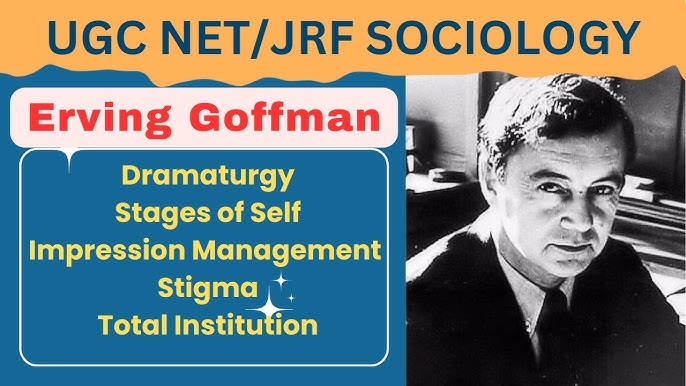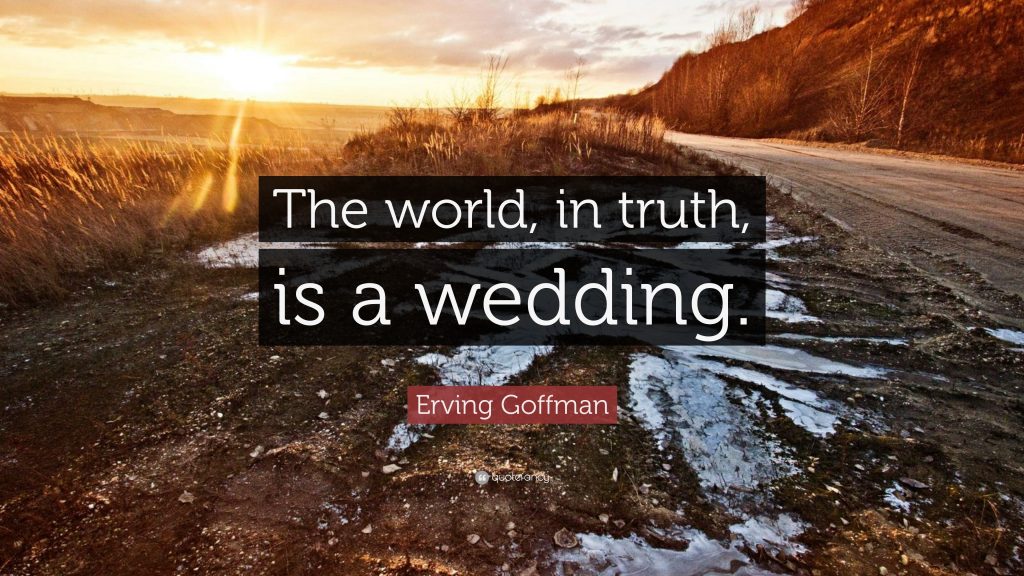Identity is a combination of your physical and behavioral traits that define who you are.For example,your name is part of your identity, as is the form and colour of your eyes and your fingerprint. Different social groups and people view us in different ways as your behaviour and characteristics change in different social settings.For example when speaking to a teacher your speaking in a more professional manor,and want to represent yourself as respectful.Whereas,when your interacting with your family or friends you are talking in a much more relaxed manor as this is a more comfortable setting for most.
Therefore,we conduct ourselves in different roles e.g.daughter,employee it is not a fixed position we use certain words,wear certain clothes,behave in certain ways depending on the situation and the individual (audience) we interact with in order to convey the best possible impression.The front stage also known as the public stage,we might be feeling a particular emotion,we may be angry for instance but we may not be presenting it to the people we interact with at that moment that’s what a front stage is.On the other hand,the backstage we may be expressing and showing that emotion but there may not be anyone there to present it to or see it so this is more of a closed emotion we keep to ourselves;so backstage people may take a break and let off some steam.

Interactionism is a kind of response to a structuralism that the meaning we produce about ourselves our identity are the structures of power and we don’t have control over it.
Erning Goffman,a candadian born sociologist,and writer was considered the most influential American sociologist of the twinenth century.In his book,The presentation of Self in Everyday Life,in which he talks about the social construction of self in a world he considers to be a stage,with all men and women merely being the players.
I have suggested that social front can be divided into traditional parts,such as setting,appearance and manner,and that (social different routines may be presented from behind the same front) we may not find a perfect fit between the specific character of a performance and the general socialized guise in which it appear to us.(Goffman,1959)

We regularly rely on having access to communication inputs comprised of past processes of mediated communication:much of that information is comprised of data automatically collected via platforms,which then feeds back into our perception of ourselves and our perception of ‘others’.As a result,the social world can no longer be understood in terms of classic social constructionsim ,which clamied that the ‘most important experience of others takes place in the face-to-face siucation’Berger and Luckman (1966)
References:
Berger,L.Peter&Luckmann Thomas (1966) ‘The social construction of Reality:A Treatise in sociology of Knowledge.
Goofman,Erving(1959)’The presentation of self in Everyday Life’


I agree with this article. The author delves deep into the multifaceted nature of identity, emphasizing the combination of physical and behavioral characteristics in shaping our perceptions in diverse real-world social environments. The astute use of Goffman’s concept, portraying life as a stage with everyone as actors, highlights the article’s exploration of how individuals adopt different behaviors and expressions in various roles and contexts, illustrating the concepts of frontstage and backstage.
Furthermore, in responding to interactionism, the article expresses dissent towards structuralist viewpoints, underscoring that the meaning derived from identity is not entirely controlled by power structures. The discussion on the differentiation of social fronts and the impact of platforms like social media adds layers to the narrative, revealing how they influence our self-perception and perceptions of others. The article provides a profound understanding of the complexity of identity construction, enabling readers to better comprehend the transformations in the social world during the digital age. In conclusion, it is a thought-provoking piece that illuminates the diversity of identity in different backgrounds and interactions.
Hi! I loved reading your blog, I completely agree with your statements and information you discussed in this blog post. Exploring and constructing one’s identity in a digital world is a remarkable journey of self-discovery and empowerment. Embracing the digital era for identity formation opens up a world of possibilities, encouraging personal growth and fostering a global community that thrives on the collective tapestry of individual stories! And I personally think this blog has covered the main points.